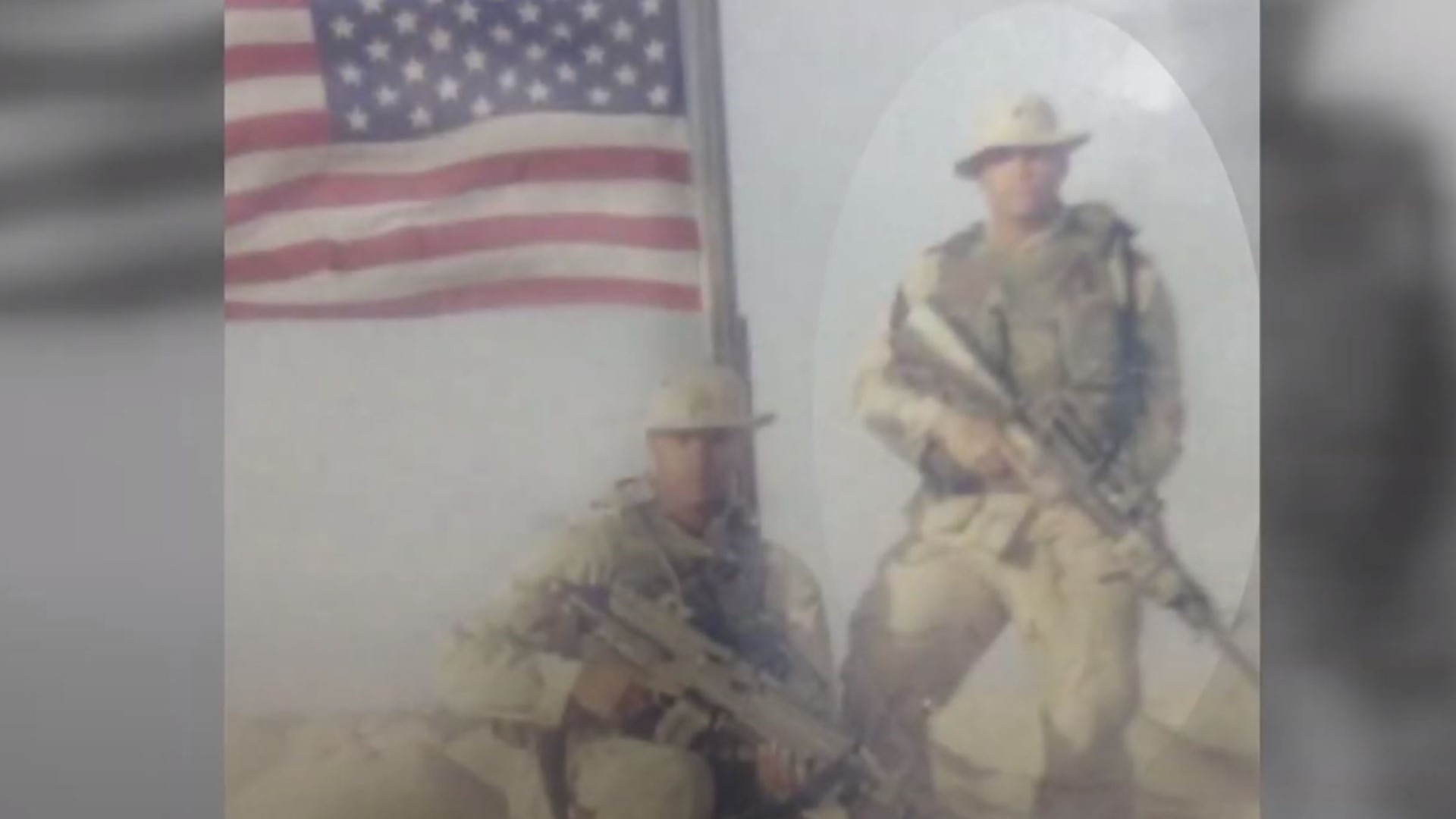MONROE, Ga. — Twenty years ago this week, two Gwinnett County army veterans were among the thousands of soldiers and Marines invading Iraq. Today, they’re dealing with some of the fallout from that war and the mental health of troops who fought in it.
Military service can build character. It can also fray the nerves, mess with the mind and create challenges for some individuals that last for decades.
When the U.S. invaded Iraq, 22-year-old Army specialist Johnny Grimes was part of it.
Grimes served in the Army nine years, with four tours of Iraq. He came home, moved to Alaska and his life came apart.
“I’d gotten on meth and just started losing everything,” Grimes said. “I’d done lost my house, my truck, my snow machine, my motorcycles. I’d done lost it all.”
He’d been living inside a storage unit when he called his old Army friend, Brandon Watts, who was also part of the invasion to Iraq. His transition to civilian life was also tough.
“Between my tours I struggled a lot, you know. Alcohol, drugs, partying, divorces,” Watts said. “Trying to replicate Iraq. Living crazy without a care.”
Watts said he turned his life around while living in Kuwait as a military contractor. There, he says he saw human trafficking, found ways to undermine it – and had a revelation.
“I woke up. I said, we’ve got a lot of [military] comrades that are suffering, struggling, losing everything and who’s going to help them? The VA?” he said. “And why’s it everyone else’s responsibility?”
Watts formed a nonprofit in the Walton County town of Monroe called Operation Rally Point. It helps homeless veterans turn their lives around. It leases a handful of modest apartments in town.
Lonnie Streeter has lived in one of them for a few days. He told 11Alive News Tuesday he had been sleeping at Hartsfield-Jackson Airport at one point in his life. The temporary housing is “just for me to get myself back mentally in shape. And then (for) me (to) help the next man up,” Streeter said.
From the military, young people learn skills and discipline. They also get fed, get housing, get a paycheck. When they leave, many have to learn independence. When they can’t, some end up on the street. Watts says many hold nominal jobs yet still sleep in their cars, struggling to find stability.
“I get a front row seat to people rebuilding their lives,” Watts said.
Grimes said the help he got was life-changing.
“Brandon saved my life,” he explained.
Grimes now works with Watts at Operation Rally Point.

